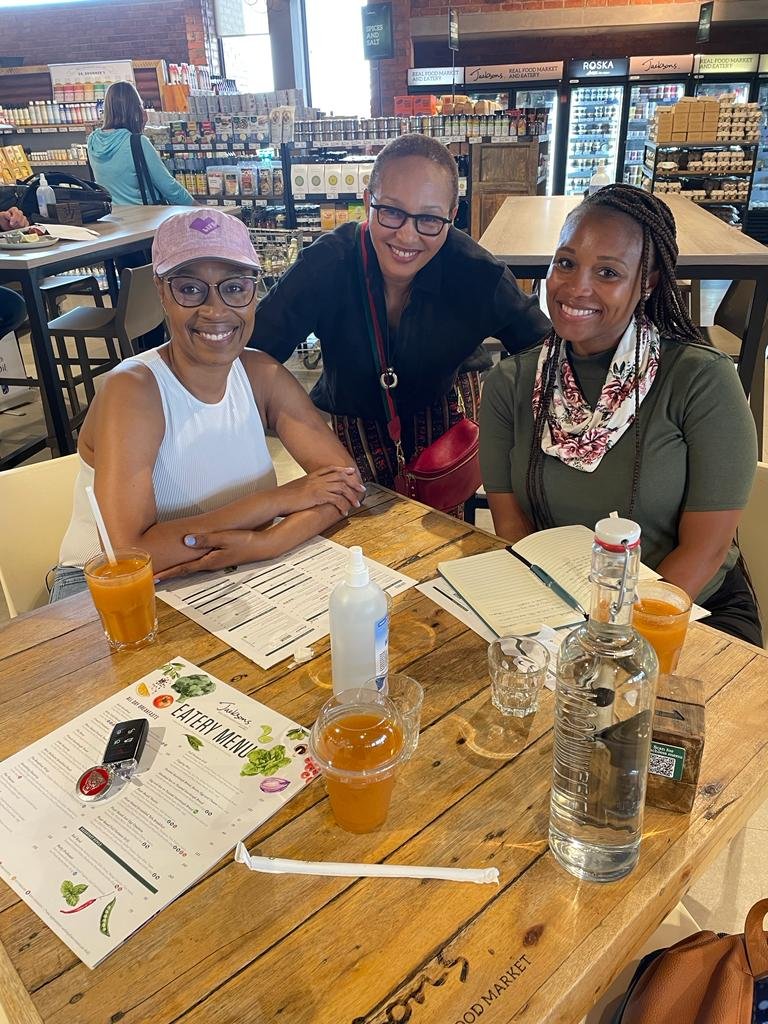Aligning: Meetings with loveLife and Dare
“Health is defined as ‘a state of complete physical, mental and social well being.’”
In two particular meetings, an idea started to crystallize: what if my project could have a particular focus on stakeholder management? I have sensed a gap in the ability of organizations to connect all of the various parties that would support their missions and contribute to success. Perhaps I can help bridge that gap by sharing what I learned about bridging gaps between children, parents or caregivers, schools, educators, principals, non-profit leadership and staff, community leaders, government and other key players who must be engaged for a fitness or wellness program for kids to work?
I met with Dr. Linda Nkomo, CEO of New loveLife Trust. loveLife is a South African non-profit youth organization established in 1999 as a joint initiative of leading non-governmental organizations, private foundations and the South African government. Though initially focused on HIV issues, loveLife has evolved to cover youth health promotion more generally, positioning its programs not only for risk reduction and active lifestyles but also as the generator of empowered young people with a better future. This is achieved through a variety of avenues, including establishing youth centers in disadvantaged communities and mobilizing youth ambassadors in furtherance of the mission called groundBreakers. To learn more about loveLife, visit https://lovelife.org.za.
I also met with Julia Nkosi, Founder and CEO of Dare Restoring Worth NPC, a youth mentorship and coaching academy established in 2013. Dare mentors and coaches youth from disadvantaged backgrounds who are vulnerable and excluded. The organization focuses on work readiness and active citizenship, and its programs are centered on exposure and experiential learning. Dare exposes young people to opportunities that help them access personal and leadership development and plan their career paths, and encourage and support youth-led projects with the necessary skills required to plan and deliver sustainable projects in their communities. To learn more about Dare, visit https://darerw.co.za.
“The youth need to be more involved, equipped and resourced so that they can meaningfully contribute towards the development of the country and to be part of the change required to address the inequalities within our society and advance it forward, and global community.”
Both Dr. Linda and Julia spoke to me in-depth about stakeholder management for their organizations. From their view, they have to first manage internal stakeholders, which means understanding the interests of the board, executives and staff. Things like staff engagement surveys, strategic planning working sessions and promoting transparent communication internally are key best practices.
Second, beyond their organizations, there are several categories of external stakeholders that must be managed:
(1) Children Participants
(2) Parents/Caregiver
(3) School Educators, Principals and District
(4) Neighborhood and Community Leaders
(5) Entities
(6) Institutional and Individual Funders
(7) Media
It is important to engage with the children, parents and schools at the outset to co-create solutions as opposed to forcing pre-determined ideas on them because you may not have full awareness of the root causes of the issues you’d like to solve. Likewise, it is essential to carefully manage your reputation and brand, making sure you are disseminating information about your successes, defining your scope of impact, clarifying your development needs, and fostering a sense that you are dependable - all in a way that resonates with each audience you must speak to.
It is worth calling out a particular need to engage parents, caregivers and family. For any change to take place it needs to be a collective effort that involves intergenerational partnership of knowledge and relevant skills transfer. Through intergenerational dialogue, new ideas and solutions may be discovered and formed to meet the needs within local communities and make a meaningful difference in the society.
I am now intentionally gathering more information about organizations’ stakeholder management, particularly when they engage a broad range of stakeholders with disparate opinions and interest. I look forward to future learning in this area.

